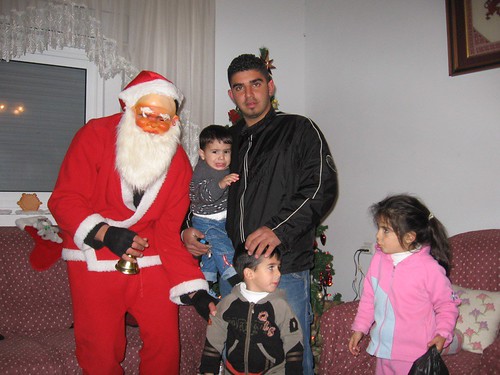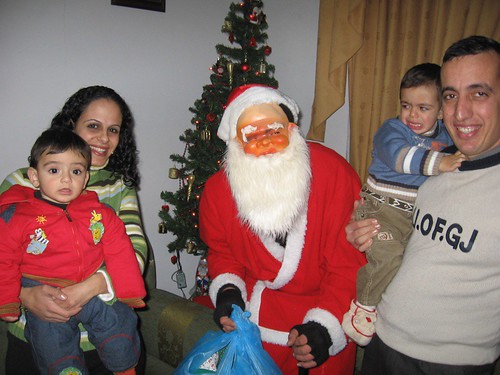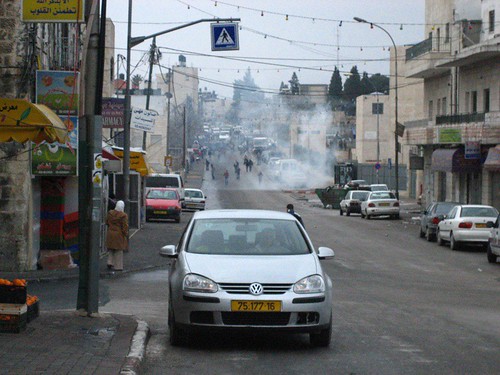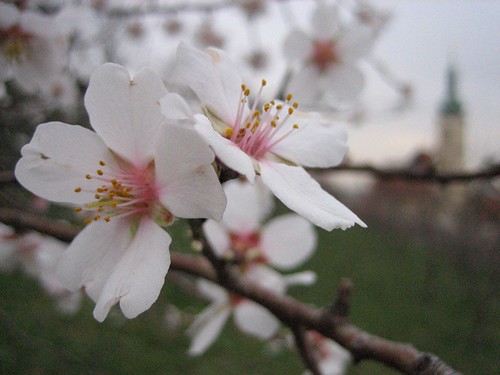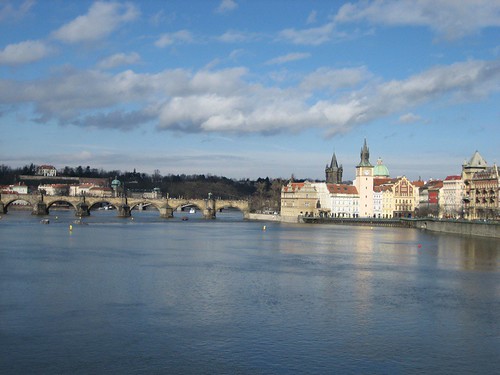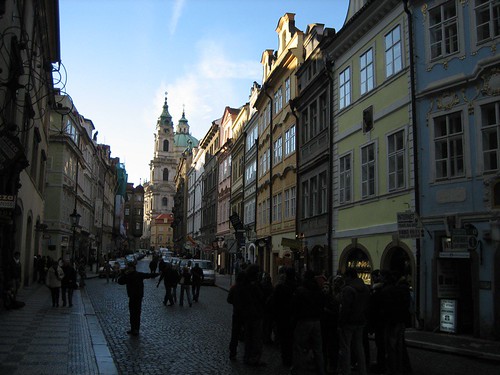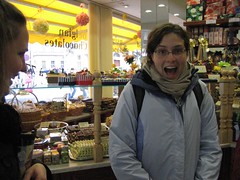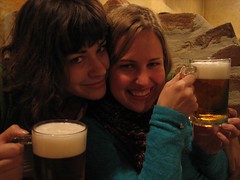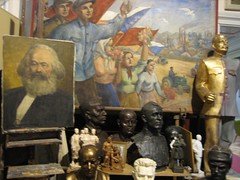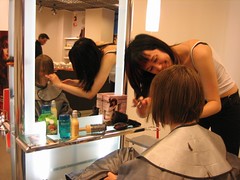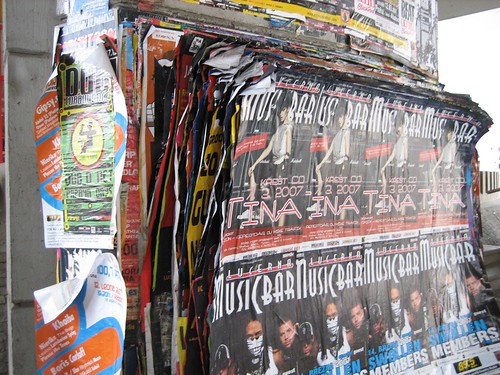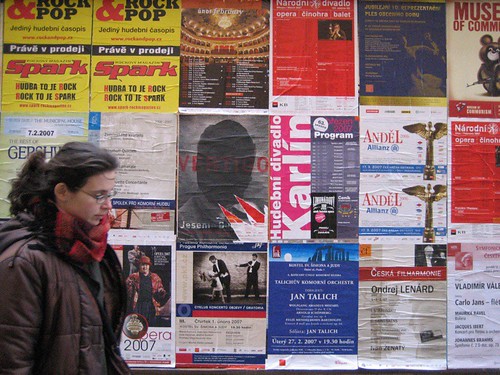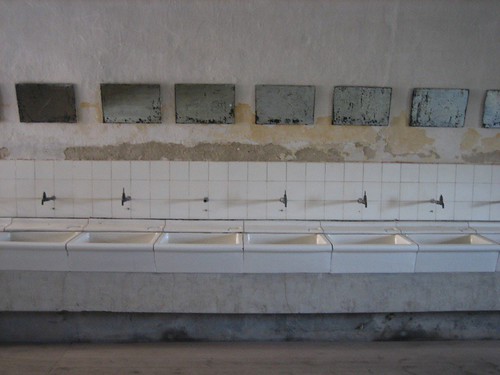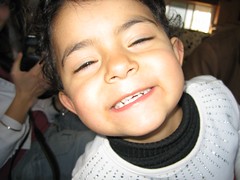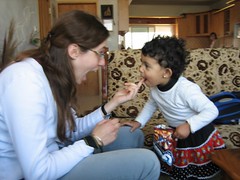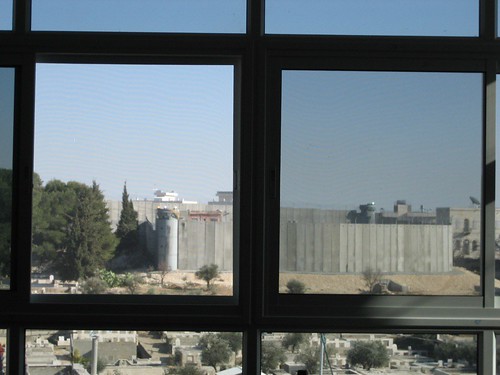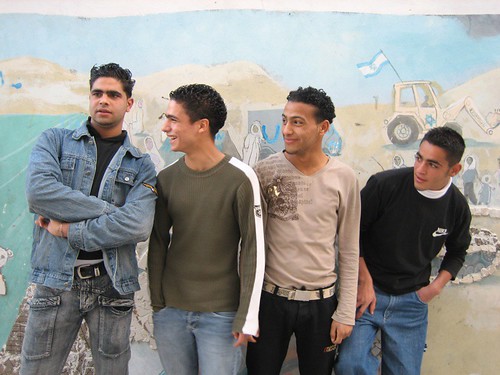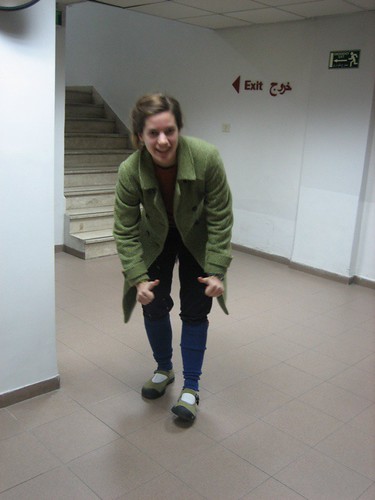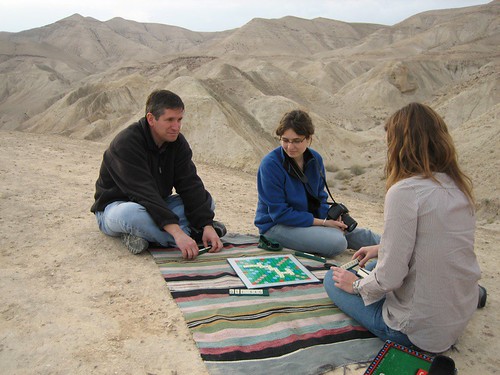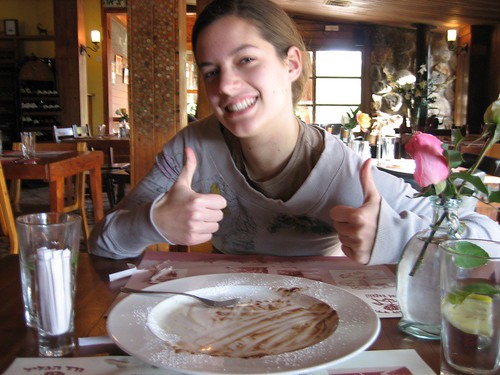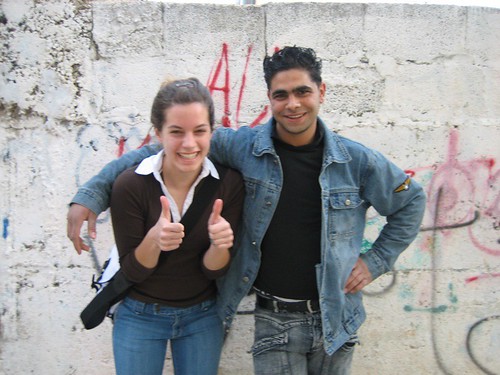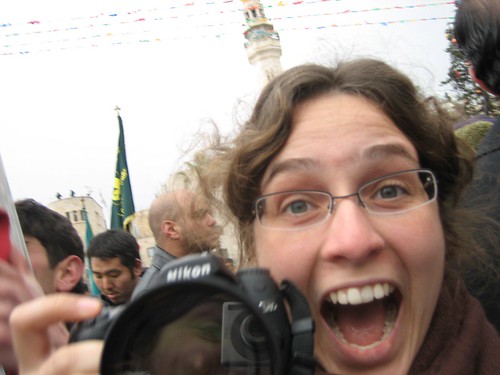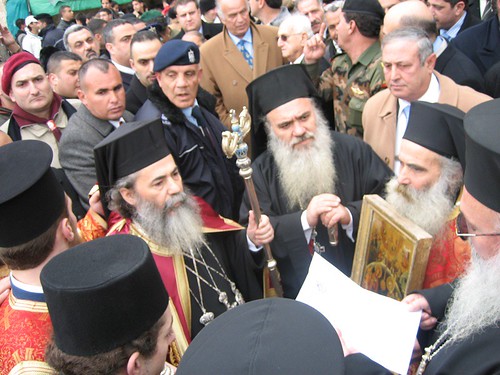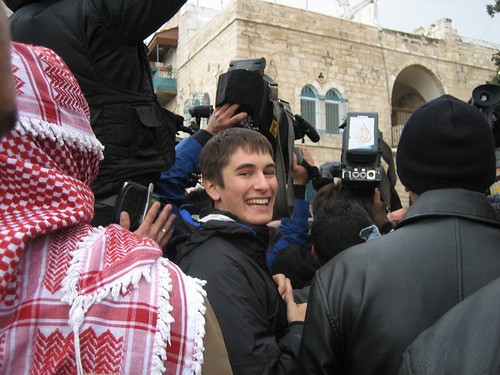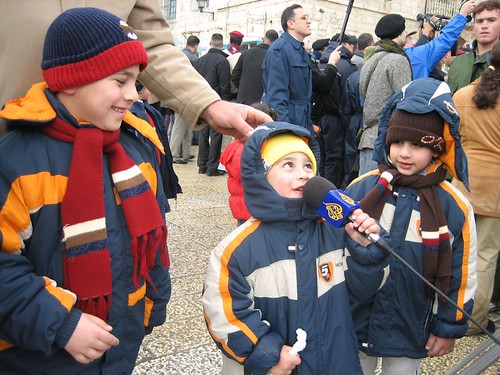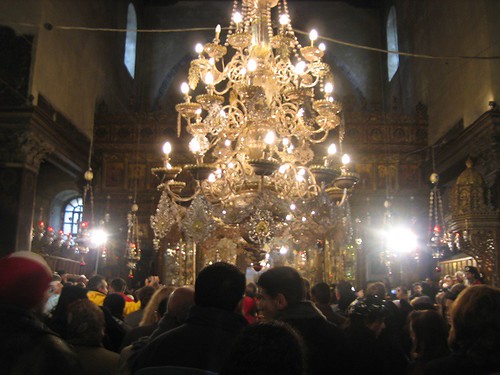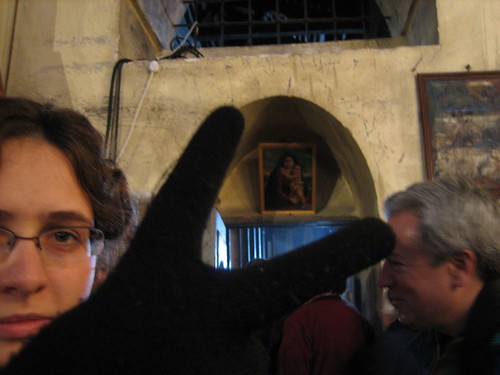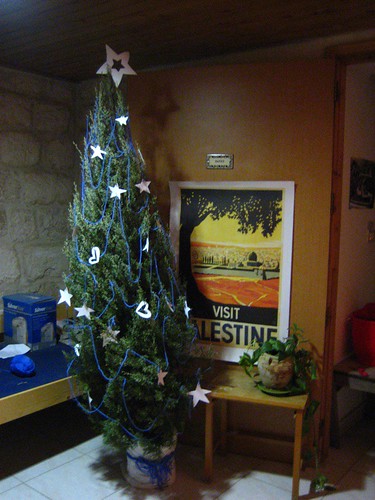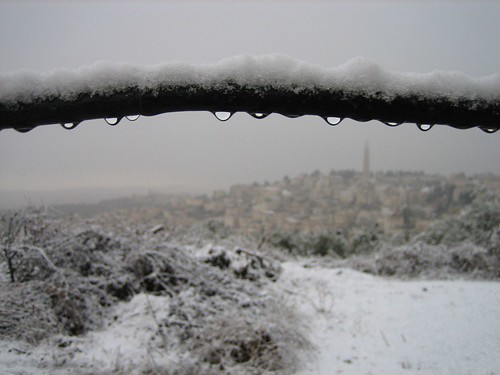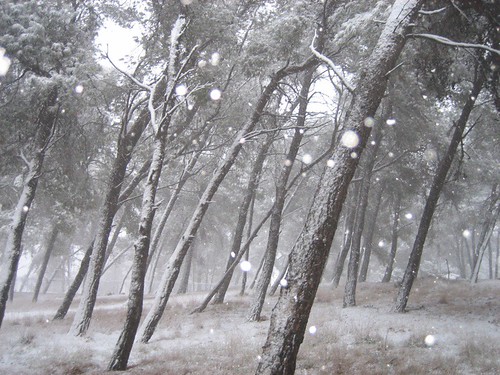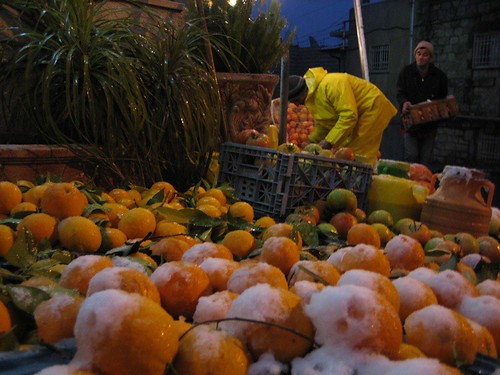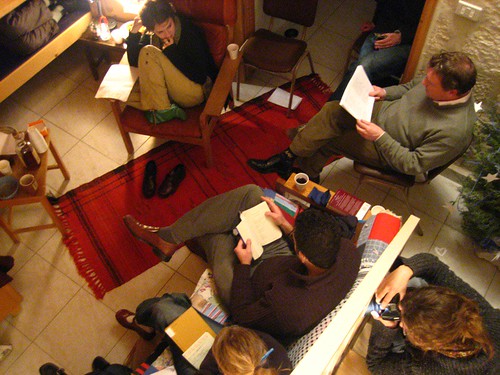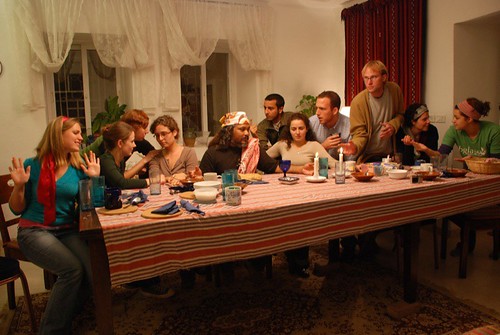My friend Bassem works down the hall from me, and shows up to work every day in his slick Bassem style: bicep-hugging t-shirts and a black leather jacket. Today Bassem was running around in a dowdy winter parka, looking quite unlike his polished self. Why? Because his leather jacket was a smoldering pile of ashes in the gutted skeleton of his organization’s van.
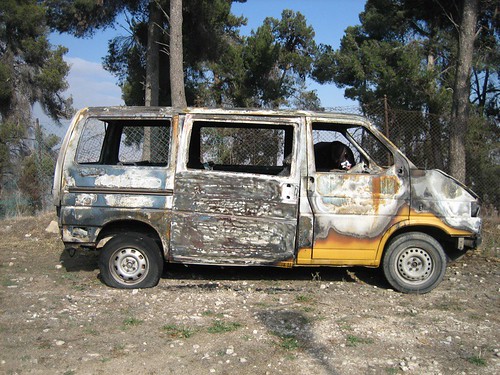
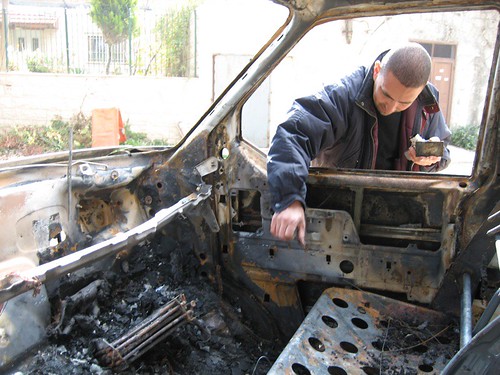
Daaaaaaang is right. The van was having problems yesterday, so Bassem pulled over, opened the hood, and then watched as the van transformed into a fireball within minutes. Of course he hadn’t bothered to bring his wallet, his cell phone, his passport or his leather jacket for a quick peek under the hood, so all his stuff melted into the pile of ashy rubble that now sits seven inches deep on the floor of the van.
In other traffic reports of recent days, Khaled and Richard, two of my co-workers, have been caught in the quagmire of checkpoints lately. It being the tail end of olive harvest, Richard and Khaled were heading back from the olive press with several gallons of olive oil in the back of the truck. At the checkpoint, though, the Israeli soldiers on duty wouldn’t let them through. This hadn’t been a problem on the previous trip to the press, when I (a white girl) was sitting shotgun. But with the absence of an international face, things are rarely so easy. Richard is from Jerusalem and Khaled from Bethany, a distance of about four miles between the two. But because Khaled is a West Banker, he was told to go through the checkpoint for West Bankers, while Richard could go through the checkpoint for Jerusalemites. If, for some random and likely reason, one of them was denied entry back into Jerusalem, they wouldn’t be able to get in touch with the other, as the two checkpoints are several miles apart. Richard ended up borrowing a car from a friend in the neighborhood, and Khaled took the truck and the oil home for the night, driving it to the office the next morning.
A week after that nuisance, Richard was once again returning (alone this time) from the press with the last crop of oil. Because he’s a Jerusalemite he shouldn’t have any problems accessing Jerusalem from the West Bank, but seeing the olive oil in the back of the truck, the soldiers this time demanded import forms. Here’s one of the infuriating things about living here: The line between Jerusalem and the West Bank is
not an international border. If it were, the West Bank might be an independent Palestinian state. Israel treats the Green Line (the West Bank-Israel boundary) as a border when it comes to Palestinians trying to get to get to Jerusalem. But Israel doesn't treat it as a border when the governement builds settlements in the West Bank and underhandedly offers Israeli citizens cheap housing, omitting the fact that the homes are built on Palestinian land. Now they're asking for import forms, but if Israel were to acknowledge that this boundary is indeed an international border, they would no longer have a defense to their occupation of the West Bank. As the rhetoric goes, there is no occupation because the West Bank and Israel are all Israel. How can you occupy your own country? It makes me crazy.
The gears are starting to turn for the latest squeeze in Israel’s stranglehold on the Palestinian’s right to movement. Starting in January, West Bankers are not allowed to travel in yellow-plated cars, which is any car registered in Jerusalem or Israel. This means my boss cannot drive his West Bank employees to a meeting. This means my friend’s co-worker, a Jerusalemite married to a man from Ramallah, cannot travel with her husband in their Jerusalem-registered car. If they are caught riding together they will both be fined, and the car will be confiscated. A 30-minute wait at a checkpoint or having to carry your ID card everywhere or having to apply for travel permits to enter Jerusalem may seem like just a nuisance when viewed as a single event. But when you add together all of these blockades and papers and stupid stupid rules, you end up with the most depressing commute you can imagine, not to mention a lot of humiliation. And if your husband is from the next town over or your checkpoint guard decides to ask for ridiculous documents, or your car spontaneously combusts and your ID card goes up in a fuel-fed blaze, you’re just that much more screwed.
For Christmas this year, consider asking your loved ones for a copy of Jimmy Carter’s new book,
Palestine: Peace Not Apartheid.

A brief excerpt:
“The overriding problem is that, for more than a quarter century, the actions of some Israeli leaders have been in direct conflict with the official policies of the United States, the international community, and their own negotiated agreements. Regardless of whether Palestinians had no formalized government, one headed by Yasir Arafat or Mahmoud Abbas, or one with Abbas as president and Hamas controlling the parliament and cabinet, Israel’s continued control and colonization of Palestinian land have been the primary obstacles to a comprehensive peace agreement in the Holy Land. In order to perpetuate the occupation, Israeli forces have deprived their unwilling subjects of basic human rights. No objective person could personally observe existing conditions in the West Bank and dispute these statements.”
Preach it, Jimmy! This website (http://www.npr.org/templates/story/story.php?storyId=6543594) has a longer excerpt and a good interview with President Carter.
